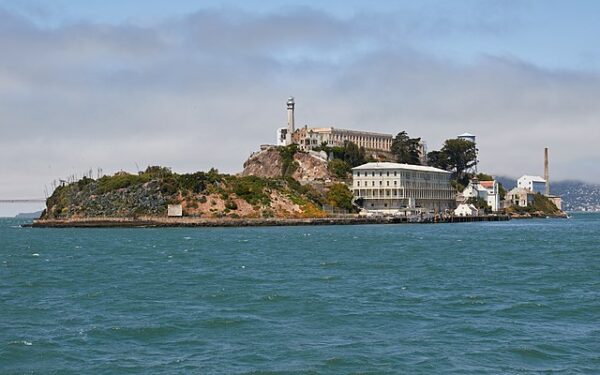Former President Donald Trump announced Sunday night that he has ordered the U.S. government to reopen and significantly expand Alcatraz, the infamous island prison off the coast of California that once held some of America’s most notorious criminals. The plan, he said, is to use the rebuilt facility to incarcerate what he described as “America’s most ruthless and violent Offenders.”
“For too long, America has been plagued by vicious, violent, and repeat Criminal Offenders, the dregs of society,” Trump wrote on his social media platform Truth Social. “That is why, today, I am directing the Bureau of Prisons, together with the Department of Justice, FBI, and Homeland Security, to reopen a substantially enlarged and rebuilt ALCATRAZ.” He framed the proposal as a return to a more “serious Nation,” invoking a hardline vision of justice rooted in isolation and deterrence.
Alcatraz, often called “The Rock,” has not functioned as a prison since 1963, when it was shuttered due to high operating costs and decaying infrastructure. In its 29 years as a federal penitentiary, it housed infamous figures such as Al Capone, George “Machine Gun” Kelly, and Robert Stroud, the so-called “Birdman of Alcatraz.” The island has since been transformed into a National Park Service site, drawing over a million tourists annually with its grim legacy of maximum security and minimal mercy.
Legal scholars immediately questioned the feasibility and constitutionality of Trump’s Alcatraz plan, wrote The Associated Press, noting that reopening the facility would require significant congressional appropriations, environmental waivers, and likely face legal challenges given the site’s designation as a national historic landmark.
Yet for Trump’s supporters, the move signals a bold return to “law and order” politics—a theme central to both his past campaigns and current rhetoric as he eyes a return to the White House. His choice of Alcatraz is no accident: more than just a prison, it looms large in the American psyche as a symbol of uncompromising federal authority, inescapable punishment, and the fearsome final stop for society’s outcasts.
As of Monday, no formal guidance had been issued by the Bureau of Prisons or the Department of Justice regarding Alcatraz’s future. The National Park Service, which currently manages the island, declined to comment.








